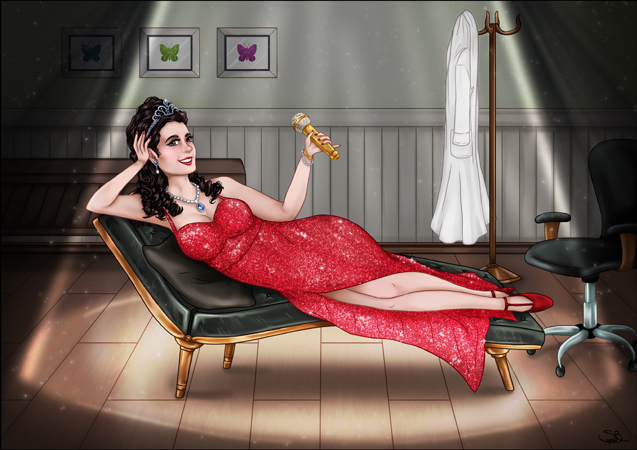THERAPY
New Athenaeum Theatre, 24 The Octagon, Dunedin
21/03/2024 - 23/03/2024
Production Details
Script by Chelsea McRae
Music by Mario Sadra-de Jong
Directed by Marea Colombo
Independently produced
THERAPY is a one (and a half) woman musical which follows a kiwi woman’s visit to a therapist’s office with the hope of gaining a quick fix for dizzy spells. She spends a few sessions laughing about intrusive thoughts, discussing the weird side of grief, and trying to convince her therapist she isn’t crazy.
The show is based (mostly) on real events and was developed with support from the University of Otago School of Performing Arts. THERAPY features live, original music with script by Chelsea McRae and music by Mario Sadra-de Jong.
This show does discuss suicide, sexual assault, and uses language that may offend.
Recent article: https://www.otago.ac.nz/news/newsroom/writing,-producing-and-performing-her-story
8pm, Thursday 21 March – Saturday 23 March – New Athenaeum Theatre, Dunedin
https://www.dunedinfringe.nz/events/therapy-a-comedy-cabaret
8.30pm, Friday 31 May – Saturday 1 June – Little Andromeda, Christchurch
https://littleandromeda.co.nz/show/therapy/
Tickets start at $18
Performed by Chelsea McRae
Accompaniment by Mario Sadra-de Jong
Technical Manager - Cody McRae
Developed with help from the University of Otago School of Performing Arts and Amanda Faye-Martin
Musical , Theatre ,
55 minutes
Celebrating the messiness of personhood with compassion and care
Review by Ash Dawes 22nd Mar 2024
Therapy, which premiered at the New Athenaeum Theatre as part of the Dunedin Fringe Festival, is written by lead performer Chelsea McRae. From what we can tell, the show is largely autobiographical, and covers experiences from sexual assault, to suicide, to religious trauma. The subject matter is heavy, and the performers allow it to be so, while the show’s comedy gives the audience a chance to decompress.
The script is tightly written (dramaturged by Amanda Martin) and the show has clearly been well-rehearsed (directed by Marea Colombo). I’m so impressed by McRae, who is in complete control of the audience for the entirety of the performance, and who has an intuitive sense of comic timing. Her singing voice is also outstanding, and the songs integrate into the arc of the rest of the piece without ever feeling forced.
This hour-long show covers multiple therapy sessions, separated by interludes where the projector becomes a phone screen—a device that is hugely effective. This narrative structure allows us to witness the process of growth across weeks, and creates a sense of catharsis by the end. As an audience, we are rooting for McRae, who initially goes into the therapy office for lorazepam, claiming she’s “already done the work” (this gets a laugh).
Therapy is a musical comedy, so it would be remiss not to comment on the music (composed and performed by Mario Sadra-de Jong). Sadra-de Jong is the show’s second performer, playing the keyboard and on one occasion chiming in to address the audience. Although the programme does not credit a costume designer, Sadra-de Jong wears an amazing glittery outfit that I am both impressed by and envious of.
The lighting design (Cody McRae) supports the show to great effect. The keyboard and the main stage space are lit separately by coloured LEDs, which change to delineate separate scenes. The set consists of a red chaise longue on a rostrum, and a keyboard beside the stage. The rostrum becomes the therapy room, and we the audience become the therapist. This is an excellent directorial choice, as it keeps us firmly engaged in the action throughout the piece. Even sitting in the third row back, I feel as if McRae is making eye contact with me directly, and I can’t look away.
It isn’t often that a performance brings me to tears, but Therapy did. It’s an artistically brilliant piece that handles incredibly sensitive content with great care, delicacy, and compassion. Everyone involved in this show should be hugely proud of what they’ve achieved.Personally, I found this piece quite triggering, and I’m sure I won’t have been alone in that. It is a credit to all involved, then, that Therapy creates a space in which it’s safe to be uncomfortable. Art is not supposed to always be easy to watch and the experience of being a person is not supposed to always be comfortable—far from it. Therapy celebrates the messy parts of personhood, holding space for the non-linearity of trauma and healing.
Copyright © in the review belongs to the reviewer





Comments